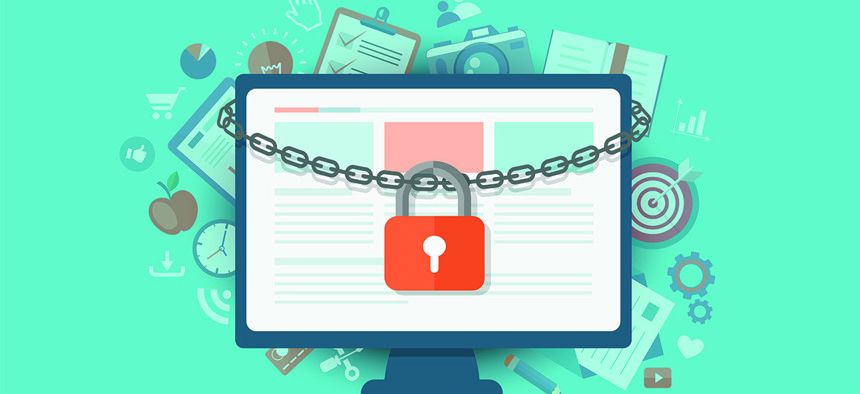Americans Love Technology—but They Want Their Privacy Back

La1n/Shutterstock.com
A new poll shows people have mixed feelings about the growing reliance on digital data in daily life.
Digital technology now dominates how many Americans interact with the world: how people get their news, talk with loved ones, and how they work.
The most recent Allstate/National Journal Heartland Monitor poll looked at the impact the digital revolution has had on American’s lives. When it comes to whether or not technology has had a vast impact, the answer is overwhelmingly yes.
Thirty-nine percent of respondents said that the ability to access information from anywhere has made their lives better. They also cited the ease of working outside of the office and staying in touch as positive outcomes of the digital revolution. Two of the most visible ways that technology has permeated American culture—online shopping and entertainment-streaming services—were amenities Americans cared much less about, with only 7 percent or respondents saying these advances had improve their lives.
Maria Cruz, who is an 18-year-old student born in the Dominican Republic, thinks that technology has made getting an education and job just a little easier.
“It’s helped me do homework and network with people when it comes to my career.” She also uses Skype and social media apps like WhatsApp, to connect with friends internationally.
Even though older generations appeared to be a slightly less excited about the Internet, many appreciate the opportunity it gives them for continued learning. Mikki Telesco, from California, says that she embraces the Internet despite the fact that she considers herself “Internet illiterate.” After retiring from the garden department at Home Depot, Telesco still uses the Internet for finding recipes, looking up insects that infect her plot of home-grown tomatoes, and learning how to de-skunk her dog.
“It’s like opening up an encyclopedia that’s got everything in the world right there at your fingertips. You can look up anything to do with anything.”
Despite the fact that most Americans agree that the Internet and the advancements that followed made their lives better, there was one thing they were resoundingly negative about: the loss of their privacy.
While tasks like shopping and keeping up on the news have become more convenient, many questioned whether technology brought the world to their doorstep at the cost of protecting their most essential information.
“There’s no way around it. There’s nothing private anymore unless you keep it in your brain,” Telesco told me. “I think anyone that is extremely intelligent can figure out a way to get into people’s stuff.“
When asked more specifically what effect has this digital revolution had on their privacy, only 17 percent of people were positive about it, while nearly half of overall respondents (44 percent) responded negatively. The remaining 34 percent had mixed feelings.
Older generations were more negative than the Millennials, most of whom have come to age amidst a bevy of technological advancement. About a quarter of young adults aged 18-24 said that technology has was good for their privacy, while nearly half of all the older age groups disagreed.
“I know that a lot of us Millennials joke about ‘cyber fear’,” Erin Gainer, a 21-year-old student at Virginia Wesleyan College said. “I don’t want to say that older generations don’t understand, but I do think the Internet has its own culture, and there’s a lot of cultural context that you have to have been brought up in to fully comprehend.”
While Gainer agrees that Millennials may be more entrenched in technology, she notes that they also understand the risks. She drew on instances of Internet fraud among her friends and public cyberbullying, such as Gamergate.
“I think that the Internet can be just another platform for harassment in addition to such a great outlet for raising awareness for issues.”
Of the 1,000 Americans polled, the results of how people perceived their privacy generally trends more negatively than positively across income level, class, educational background, employment status, and political-party affiliation.
The only exception was non-white respondents. While 47 percent of their white counterparts said technology had impacted their privacy negatively, black men and women were most likely to say technology had improved privacy. Overall, 29 percent of black Americans were positive when it came to feelings about their privacy in the digital age.
So even as Americans become more and more reliant on technology, it seems that most remain wary of its potential for harm.
(Image via La1n/Shutterstock.com)
NEXT STORY: GSA Loses Customer Experience Champion





